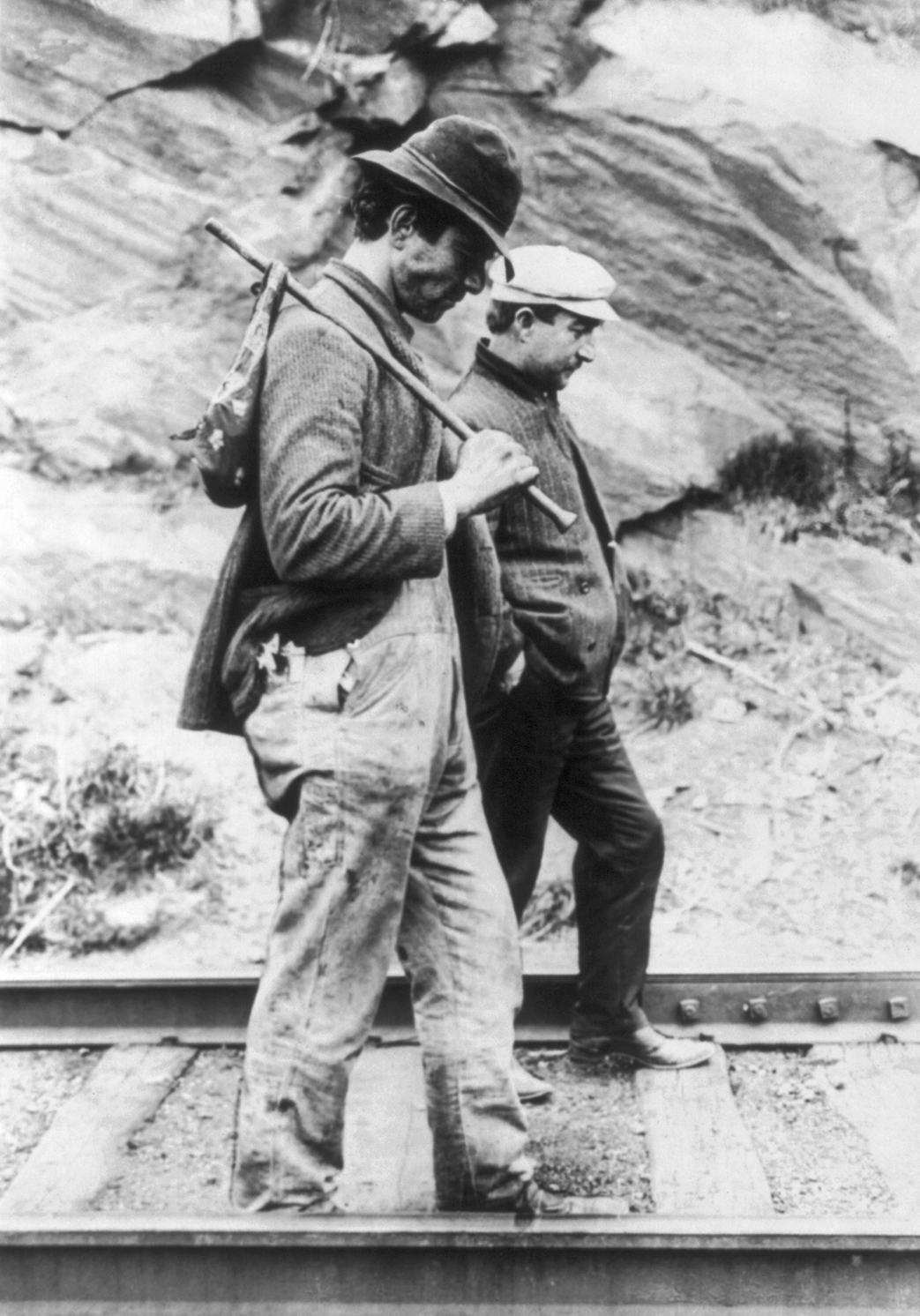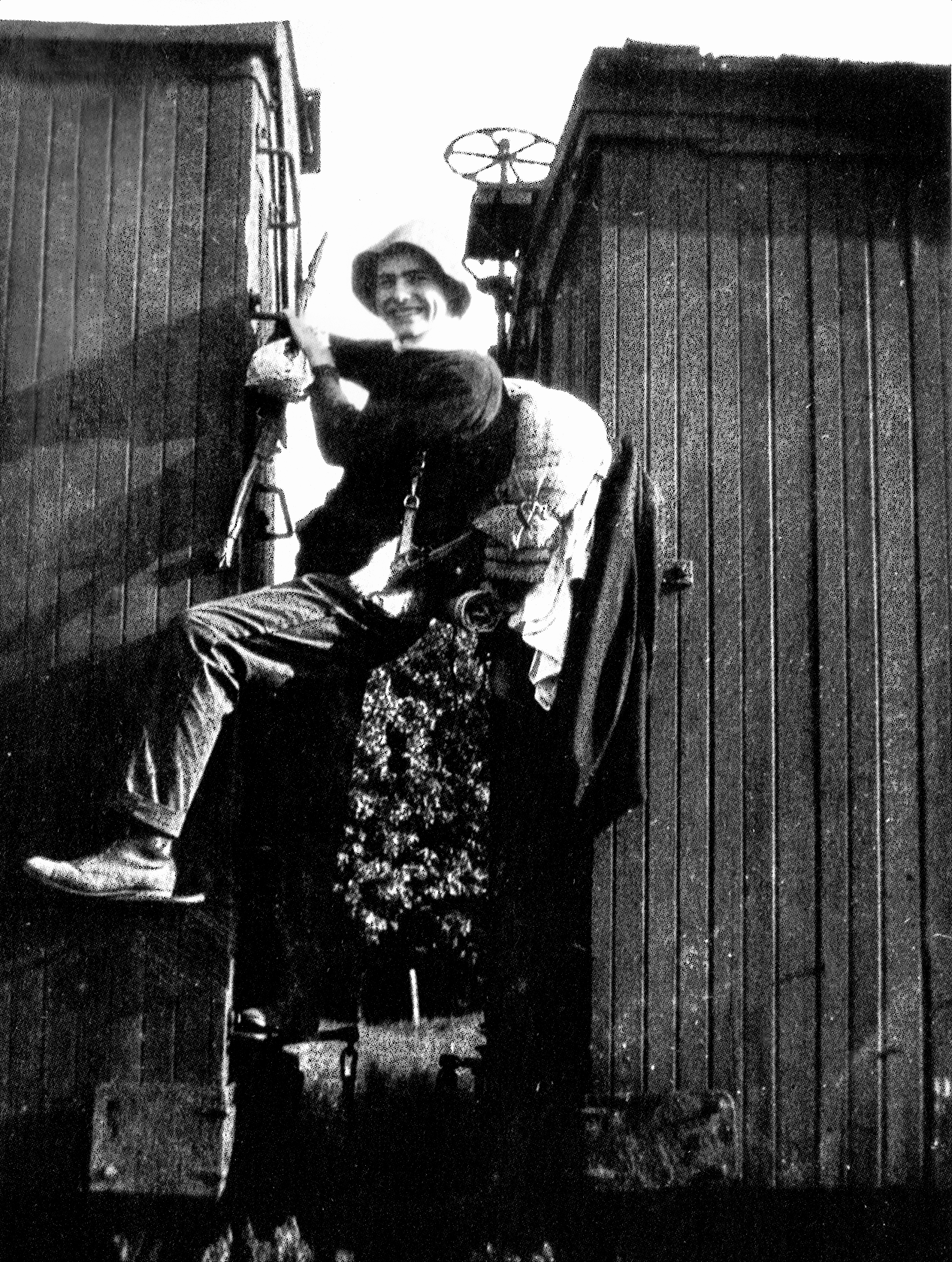|
Rolling Nowhere
''Rolling Nowhere: Riding the Rails with America's Hoboes'' is a nonfiction book by journalist and professor Ted Conover based on his undergraduate ethnography research on the life and travel experiences of 1980s railroad hoboes in the Western United States."Book Beat: Conover’s Colorado roots" . Penguin Random House Canada: Books. 2022. Accessed March 23, 2022.Conover, Ted. ''Rolling Nowhere: Riding the Rails with America’s Hoboes". 1984 (2001 reprint). Vintage Books, NY. It was Conover’s debut book, for which he was represented by New York literary agent Sterling Lord, who had previously been the agent for |
Ted Conover - Rolling Nowhere
TED may refer to: Economics and finance * TED spread between U.S. Treasuries and Eurodollar Education * ''Türk Eğitim Derneği'', the Turkish Education Association ** TED Ankara College Foundation Schools, Turkey ** Transvaal Education Department (TED) Entertainment and media * TED (conference) (Technology, Entertainment, and Design) * ''Tenders Electronic Daily'', a journal on government procurement in the European Union * Turner Field (The Ted), of the Atlanta Braves until 2017 Technology and computing * MOS Technology TED, an integrated circuit * TED Notepad, a freeware portable plain-text editor * Television Electronic Disc, an early Telefunken video disc * Transferred electron device or Gunn diode * TransLattice Elastic Database, a NewSQL database Transport * Teddington railway station, London, National Rail station code Other uses * Thyroid eye disease, aka Graves' ophthalmopathy * Tooheys Extra Dry, Australian beer * Turtle excluder device, for letting sea turtles e ... [...More Info...] [...Related Items...] OR: [Wikipedia] [Google] [Baidu] |
Ted Conover
Ted Conover (born January 17, 1958)About the Author: Ted Conover '80 Amherst College — Featured Book of the Month. Retrieved on February 22, 2022. is an American author and journalist who has been called a "master of immersion" and "master of experience-based narrative nonfiction.""Travel Writer: Ted Conover" January 1, 2011, citin Publishers Marketplace ''Publisher’s Lunch'' A graduate of Amherst College and a former Marshall Scholar, he is ... [...More Info...] [...Related Items...] OR: [Wikipedia] [Google] [Baidu] |
Ethnography
Ethnography (from Greek ''ethnos'' "folk, people, nation" and ''grapho'' "I write") is a branch of anthropology and the systematic study of individual cultures. Ethnography explores cultural phenomena from the point of view of the subject of the study. Ethnography is also a type of social research that involves examining the behavior of the participants in a given social situation and understanding the group members' own interpretation of such behavior. Ethnography in simple terms is a type of qualitative research where a person puts themselves in a specific community or organization in attempt to learn about their cultures from a first person point-of-view. As a form of inquiry, ethnography relies heavily on participant observation—on the researcher participating in the setting or with the people being studied, at least in some marginal role, and seeking to document, in detail, patterns of social interaction and the perspectives of participants, and to understand these i ... [...More Info...] [...Related Items...] OR: [Wikipedia] [Google] [Baidu] |
Hobo
A hobo is a migrant worker in the United States. Hoboes, tramps and bums are generally regarded as related, but distinct: a hobo travels and is willing to work; a tramp travels, but avoids work if possible; and a bum neither travels nor works. Etymology The origin of the term is unknown. According to etymologist Anatoly Liberman, the only certain detail about its origin is the word was first noticed in American English circa 1890. The term has also been dated to 1889 in the Western—probably Northwestern—United States, and to 1888. Liberman points out that many folk etymologies fail to answer the question: "Why did the word become widely known in California (just there) by the early Nineties (just then)?" Author Todd DePastino notes that some have said that it derives from the term "hoe-boy", coming from the hoe they are using and meaning "farmhand", or a greeting such as "Ho, boy", but that he does not find these to be convincing explanations. Bill Bryson suggests in '' Mad ... [...More Info...] [...Related Items...] OR: [Wikipedia] [Google] [Baidu] |
Sterling Lord
Sterling Lord (September 3, 1920 – September 3, 2022) was an American literary agent, editor, and author. His clients included Jack Kerouac, Ken Kesey, Howard Fast, Jimmy Breslin, and Doris Kearns Goodwin. Early life and education Lord was born in Burlington, Iowa, on September 3, 1920. His father, also named Sterling, was an executive at the Leopold Desk Company in Burlington who also worked as a bookbinder. Aldo Leopold, a scientist and writer, was his uncle. While in high school, Lord was the school's newspaper editor. He also became a tennis singles champ in 1937 and 1938 and was ranked nationally in both the Boys and Juniors Divisions. In 1976, his book ''Returning The Serve Intelligently'' was included in the United States Tennis Instructional Series published by Doubleday. Lord studied English at Grinnell College, graduating with a bachelor's degree in 1942. Career After graduation, Lord joined the U.S. Army during World War II, and was an editor for a we ... [...More Info...] [...Related Items...] OR: [Wikipedia] [Google] [Baidu] |
Jack Kerouac
Jean-Louis Lebris de Kérouac (; March 12, 1922 – October 21, 1969), known as Jack Kerouac, was an American novelist and poet who, alongside William S. Burroughs and Allen Ginsberg, was a pioneer of the Beat Generation. Of French-Canadian ancestry, Kerouac was raised in a French-speaking home in Lowell, Massachusetts. He "learned English at age six and spoke with a marked accent into his late teens." During World War II, he served in the United States Merchant Marine; he completed his first novel at the time, which was published more than 50 years after his death. His first published book was ''The Town and the City'' (1950), and he achieved widespread fame and notoriety with his second, ''On the Road'', in 1957. It made him a beat icon, and he went on to publish 12 more novels and numerous poetry volumes. Kerouac is recognized for his style of spontaneous prose. Thematically, his work covers topics such as his Catholic spirituality, jazz, travel, promiscuity, life in New Y ... [...More Info...] [...Related Items...] OR: [Wikipedia] [Google] [Baidu] |
Amherst College
Amherst College ( ) is a private liberal arts college in Amherst, Massachusetts. Founded in 1821 as an attempt to relocate Williams College by its then-president Zephaniah Swift Moore, Amherst is the third oldest institution of higher education in Massachusetts. The institution was named after the town, which in turn had been named after Jeffery, Lord Amherst, Commander-in-Chief of British forces of North America during the French and Indian War. Originally established as a men's college, Amherst became coeducational in 1975. Amherst is an exclusively undergraduate four-year institution; 1,971 students were enrolled in fall 2021. Admissions is highly selective, and it frequently ranks at or near the top in most rankings of liberal arts schools. Students choose courses from 41 major programs in an open curriculum and are not required to study a core curriculum or fulfill any distribution requirements; students may also design their own interdisciplinary major. Amherst competes ... [...More Info...] [...Related Items...] OR: [Wikipedia] [Google] [Baidu] |
Freighthopping
Freighthopping or trainhopping is the act of surreptitiously boarding and riding a freight railroad car, which is usually illegal. Origins and history In the United States, freighthopping became a common means of transportation following the American Civil War as the railroads began pushing westward, especially among migrant workers who became known as "hobos". It continued to be widely used by those unable to afford other transportation, especially during times of widespread economic dislocation such as the Great Depression. For a variety of reasons the practice is less common in the 21st century, although a community of freight-train riders still exists. The practice was heralded in popular culture of 20th century America with songs such as " King of the Road", and films like ''Emperor of the North Pole''. Typically, hoppers will go to a rail yard where the trains switch out crew. They will either know from other riders of a spot to hide and wait, or they will find one the ... [...More Info...] [...Related Items...] OR: [Wikipedia] [Google] [Baidu] |
Etiquette
Etiquette () is the set of norms of personal behaviour in polite society, usually occurring in the form of an ethical code of the expected and accepted social behaviours that accord with the conventions and norms observed and practised by a society, a social class, or a social group. In modern English usage, the French word ' (label and tag) dates from the year 1750. History In the third millennium BCE, the Ancient Egyptian vizier Ptahhotep wrote ''The Maxims of Ptahhotep'' (2375–2350 BC), a didactic book of precepts extolling civil virtues, such as truthfulness, self-control, and kindness towards other people. Recurrent thematic motifs in the maxims include learning by listening to other people, being mindful of the imperfection of human knowledge, and that avoiding open conflict, whenever possible, should not be considered weakness. That the pursuit of justice should be foremost, yet acknowledged that, in human affairs, the command of a god ultimately prevails in ... [...More Info...] [...Related Items...] OR: [Wikipedia] [Google] [Baidu] |







